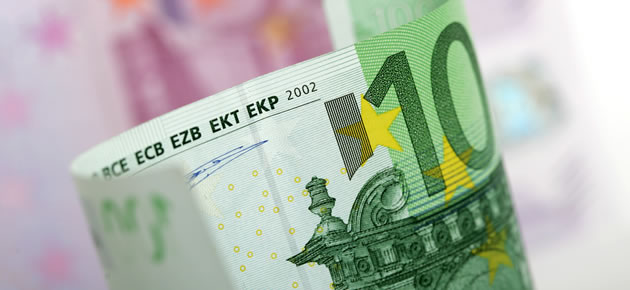Speculation surrounding the European Central Bank introducing additional stimulus in June kept pressure on the Euro over the weekend, but the Euro to AUD pairing remained trading in a narrow range during the Australasian session.
The Euro began Monday close to a one-month low against the US Dollar as investors dwelt on last week’s comments from ECB President Mario Draghi.
Draghi intimated that the central bank is prepared to take policy action in June.
However, with tensions in Ukraine spiking once more and investors losing their appetite for higher-risk assets, the Australian Dollar failed to take advantage of a softer Euro.
The common currency remained slightly stronger against the ‘Aussie’ even as an Australian report revealed an increase in business confidence.
According to figures compiled by the National Australia Bank, a gauge of national business sentiment climbed from 4 to 6 last month.
A measure of business conditions slipped from 1 to 0 in the same period.
A NAB economist said of the data; ‘Higher confidence comes as somewhat of a surprise given the negative rhetoric over the upcoming ‘tough budget’ and the persistently low level of business conditions. Broader macro indicators are looking a little more positive – including the labour market – and may be helping confidence, which is highest in finance/property/business and retail’.
The fact that investors are focusing on the upcoming Australian federal budget is one of the reasons for the ‘Aussie’s stilted performance.
Treasurer Joe Hockey is expected to outline a serious selection of spending cuts.
It is believed he will also introduce a deficit levy.
In the days ahead Australian Dollar movement will also be driven by Chinese retail sales/ industrial production figures and Australia’s home loans data.
Australia relies heavily on China for trade so investors will be hoping for upbeat reports.
Additionally, the direction taken by the Euro to Australian Dollar pairing will be determined by ZEW economic sentiment surveys for Germany and the Eurozone and tomorrow’s final German inflation figures for April.
Any negative data for the Eurozone would add to the case for the ECB stepping up stimulus next month and could drive the Euro lower.
As economist Marco Valli noted; ‘A slightly stronger economy isn’t going to change much. The ECB is becoming increasingly intolerant of low inflation.’
Conversely, any upbeat Australian reports would support the prospect of Australian interest rates being increased sooner rather than later and may boost the South Pacific currency.
Euro (EUR) Exchange Rates
[table width=”100%” colwidth=”50|50|50|50|50″ colalign=”left|left|left|left|left”]
Currency, ,Currency,Rate ,
Euro,
Euro,
Euro,
Euro,
Euro,
[/table]
